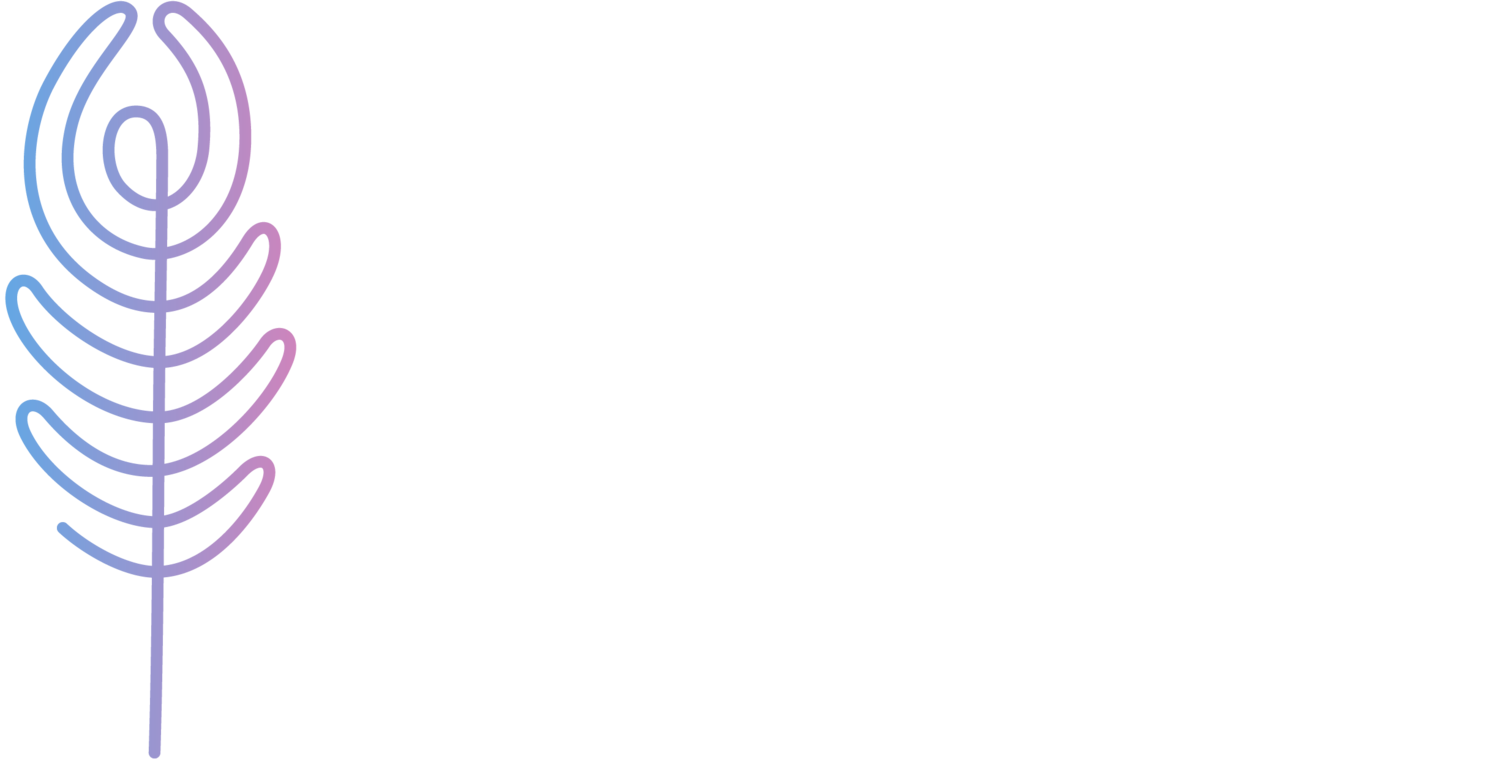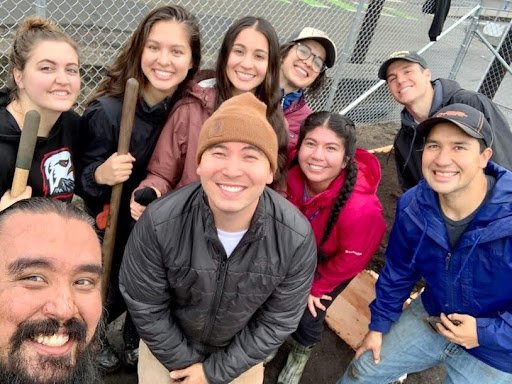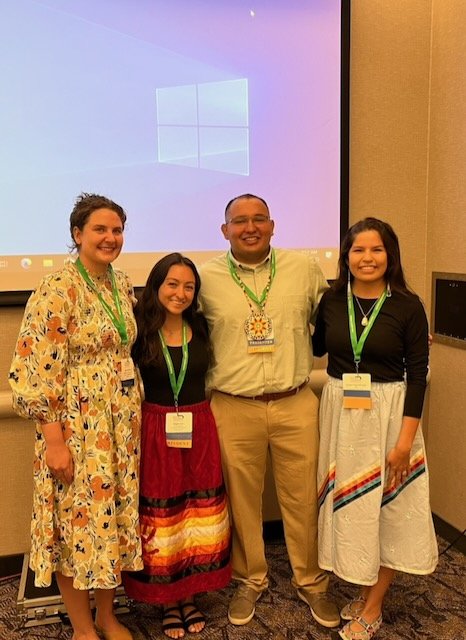
2023 HEALERS COMMUNITY CIRCLE
The 2023 Healers Community Cohort of Native medical students stand poised at the intersection of tradition and innovation, dedicating their time and expertise to uplift the health and well-being of their people. With a deep-rooted commitment to cultural responsiveness and community empowerment, these students embark on transformative community projects that bridge the gap between conventional healthcare and traditional healing practices.
If you would like to donate to our Healers Community Circle program, please give your support below.
2023 HEALERS COHORT:
-

Emily Allerton
Central Council of Tlingit and Haida Indian Tribes of Alaska
-

Hailey Baker
Cherokee Nation
-

Waylon DeCoteau
Standing Rock Sioux Tribe, Turtle Mountain Band of Chippewa
-

Jasmine Fernandez
Pascua Yaqui
-

Lala Forrest
Pit River, Modoc, Wintu
-

Tamee Livermont, MPH
Oglala Lakota
-

Nevaeh Nez
Hopi
-

Sarah Rasmussen-Rehkopf
Quileute and Makah
-

Tarlynn Nichole Tonepahhote
Kiowa and Oneida
-

Emily Walck
Navajo Nation
2023 Healers Community Cohort Project Summary
Grounded in their Indigenous heritage and fueled by a passion for their people, the Healers Community Cohort navigate the complexities of modern medicine while honoring the wisdom of their ancestors, forging a path towards holistic healing and resilience. As they begin their careers in healthcare, they embody the spirit of ancestral knowledge and modern medicine, weaving together a tapestry of hope, equity, and healing for generations to come.
Hailey at the 2023 AAMC conference in Chicago, IL
Hailey Baker
Hailey Baker (Cherokee) is a third-year medical student at the University of Minnesota Medical School-Duluth Campus. She was raised in the interior Alaska and is from a long bloodline of Cherokee nurses. She aspires to be an Obstetrics and Gynecology specialist with a research focus on birthing care in rural and Indigenous communities.
For Hailey’s Healers Community Circle project, she focused on the American Medical Association's Standing Committee on American Indian Affairs to ensure inclusion of and advocacy for Native peoples in health policy. Hailey authored and co-authoring original resolutions aimed at improving the health policy landscape, as well as reviewing and editing policies written by others to ensure that they included Native communities. In addition to writing over a dozen resolutions ranging from infertility care to Tribal public health, she attended both 2023 American Medical Association meetings to testify and advocate in-person for these policies. This resulted in over two dozen new policies added to the AMA’s policy compendium so that the largest medical organization in the country will advocate for Native people. This work and dedication resulted in Hailey being selected as Chair for the Committee during the next term.
Jasmine and student volunteers at the OHSU garden, in Portland, Oregon
Jasmine Fernandez
Jasmine (Pascua Yaqui), a third-year medical student at Oregon Health & Science University in Portland, Oregon, spearheaded a project aimed at advancing and promoting a traditional foods garden on the university's campus. Collaborating with the Northwest Native American Center of Excellence, Jasmine's goals centered around creating a space for Indigenous learners and community members to gather while promoting First Foods practices.
The project involved relocating the garden to a more accessible and visible area within OHSU's hospital waterfront campus. Jasmine organized several community events, including a garden building and planting day, to engage stakeholders in the process. A survey was conducted among community members to gather input on plant selection and garden activities, and a watering schedule was established to ensure the garden's upkeep.
Jasmine's efforts resulted in the garden becoming a highlighted feature on tours for new Native learners visiting the campus. Additionally, plants from the garden were distributed among community members, fostering a sense of ownership and connection to the project. Looking ahead, Jasmine plans to host workshops and enhance the garden with additional signage and shade space to provide individuals with a comfortable environment to engage with traditional foods practices and Indigenous culture.
A slide from Sarah’s presentation
Sarah Rasmussen
Sarah (Quileute and Makah) is a third-year medical student at the University of Washington School of Medicine-Alaska Campus. Sarah’s project was focused on outreach to Native students interested in healthcare careers. Sarah wanted to share with them about the different healthcare career options available and what the educational pathway to those careers looks like, specifically being able to speak to the journey to medical school. As part of these presentations she also wanted to focus on why their voices as Indigenous people are important in healthcare and the healing of our communities. Sarah wanted to create space for them to see how they are already leaders in their community and that their voice and knowledge is important and necessary in these academic healthcare spaces. Sarah says she wanted them to know that not only do they belong in these roles but they are bringing something that no one else can to these spaces and how important and powerful that is.
Sarah worked with high schools and tribal colleges to speak with students. She created a presentation that includes job responsibilities, specific testing/exams needed, schools in PNW region that offer these majors/programs, and specific scholarships/support organizations.
Tamee at the Healing Our Spirit Worldwide conference in Vancouver, BC, Canada.
Tamee Livermont
Tamee (Oglala Lakota), a third-year medical student at the University of Minnesota Medical School-Duluth Campus, embarked on a transformative project that evolved from her initial proposal. Originally intending to collaborate with leaders from the Oyate Health Center in western South Dakota to highlight changes and successes following the transition from Indian Health Service management to tribal organization management, Tamee's project took a different direction.
Instead, she focused on increasing traditional healing services for relatives (patients) at the clinic. Tamee facilitated discussions among respected knowledge keepers, traditional healers, and medicine people to envision a traditional healing space within the clinic. This collaborative effort led to the formation of the Wiyaksapa Committee, comprised of Elders, to further develop the concept of a traditional healing clinic.
While there is currently no written documentation of the project, Tamee plans to publish a paper in the future, detailing the process and outcomes of implementing traditional healing services at the clinic. This paper aims to serve as a framework for others interested in creating similar programs and to highlight the positive impact on the community.
Additionally, Tamee expresses a desire to publish literature on self-governance when the timing aligns with the participation of important voices in the community. Through her dedication and commitment, Tamee's project not only enhances healthcare services but also preserves and promotes traditional healing practices within Indigenous communities.
Tarlynn Nicole Tonepahhote at a Pow Wow getting kids interested in working in Healthcare.
Tarlynn Nichole Tonepahhote
Tarlynn (Kiowa and Oneida) is a fourth-year medical student at the University of North Dakota School of Medicine. For Tarlynn’s project she had hoped to mentor undergraduate and high school students as well as site-visiting students on local reservations to talk about common health topics. But during her fellowship year her capacity and schedule changed, so Tarlynn pivoted and was able to reach out to a number of students at Minot State University, University of North Dakota, University of Minnesota, Morris and students she met during her 3rd year rotations.
Additionally Tarlynn and fellow HCC student Waylon DeCoteau tabled at the annual UND powwow alongside the Indians into Medicine program where they got to interact with Native youth all the way up to elders who were interested in their hands-on activity, which included a brain model and intubation practice materials.
Tarlynn also assisted in a project conducted by a fellow classmate called “To Welcome Healing”. This was a unique opportunity to help with both a poster and round table discussion at the North Dakota Public Health Conference. Through this project, she was able to work with her colleagues Waylon DeCoteau, Megan Corn and Claire Erickson to chat with those at the conference about their medical journey, issues with training and suggest recommendations for better interactions in a medical setting. In the end, the goal was to share through experience ways to help and recruit healers from our communities and improve shared spaces among staff, coworkers and community members.
Waylon with his fellow presenters at the Dakota Public Health Conference.
Waylon DeCoteau
Waylon (Standing Rock Sioux Tribe, Turtle Mountain Band of Chippewa) is a fourth-year medical student at the University of North Dakota School of Medicine. For Waylon’s project he wanted to improve the suicide prevention procedures at the IHS facility he was doing his rotation at. But he hit a roadblock as he did not have the needed support from his colleagues and staff to complete the project, so Waylon set his sights on a different project.
For his next project he prepared to harvest a deer and bring it to the local high school for a presentation on his peoples’ ways of butchering a deer, but that had to be canceled due to snow.
Pivoting yet again Waylon partnered with fellow Healer Community Cohort Tarlynn Nichole Tonepahhote and Claire Erikson to facilitate a round table discussion at the Dakota Public Health Conference. They presented their experiences in clinical and academic spaces as medical students, and their findings in a research paper; To Welcome Healing. At this conference, they discussed their path to medicine, their experiences as Native medical students, issues with training, and recommendations for improved and shared spaces amongst colleagues. The session was attended by many different healthcare professionals from administration, nursing, therapists, educators and public health workers. The intent was to share information that helped with recruiting and maintaining welcoming relationships with Native American students, staff, coworkers and community members.
Additionally Waylon continued to be active in his community in addition to being a fourth-year medical student, husband and father of two young children. He helped coordinate a community Ultimate Warrior Challenge on the MHA nation, he assisted with weekly ceremony set up and getting wood, and coached wrestling with his brother, spoke to students at the Turtle Mountain Community High School (his home community) about Waunyan (sacrifice) and helped his wife on some projects for a community based non-profit she works with Mni Wichoni Health Circle.
Waylon’s truck loaded with wood for ceremony.
Naveah Nez
Naveah Nez (Hopi) is a third-year medical student at University of North Carolina-Chapel Hill. Her community project for the healing circle was to understand the physical activity levels and exercise modes among Native young adults, a demographic underrepresented in biomedical research. The survey sought to characterize these activities and evaluate their association with social determinants of health, environment (including college settings and tribal lands), and culture.
Recognizing young adulthood as a crucial stage for shaping long-term lifestyle behaviors, the ultimate goal is to enhance physical activity recommendations for this population by considering environmental and cultural influences. Despite facing challenges in accessing guidance and expertise, particularly relevant to Native-centered research, Naveah successfully navigated these hurdles through perseverance and community networking.
The project not only contributed to Naveah’s education but also instilled in her a deeper commitment to advocating for culturally sensitive and representative research. Naveah aspires to leverage this knowledge in future medical endeavors, particularly in orthopedic sports medicine, to better support Native athletes and communities. Naveah’s goal is to integrate traditional teachings and practices into healthcare delivery for improved outcomes and relationships within Native communities.











